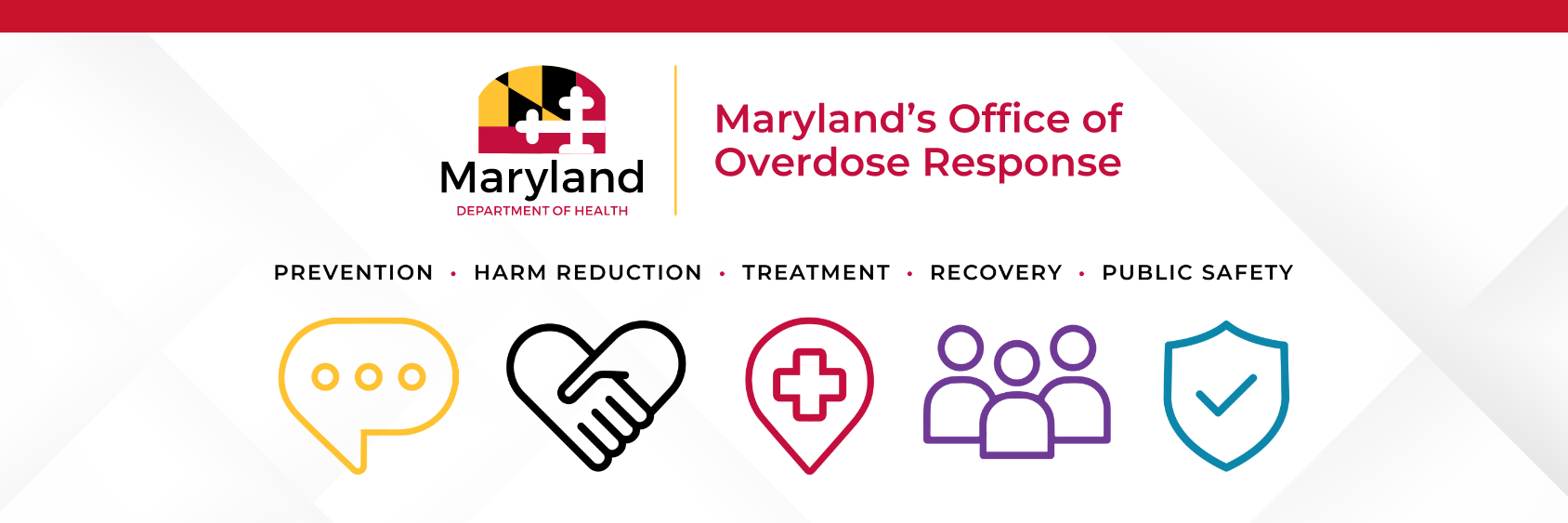Opioid Operational Command Center Requests Feedback on Inter-Agency Opioid Coordination Plan for 2022–2024
For immediate release: June 3, 2022
State Unveils Priorities for Reducing Overdose Mortality, Asks for Public Input
ANNAPOLIS, MD – The Opioid Operational Command Center (OOCC) is requesting public feedback on its draft of Maryland’s Inter-Agency Opioid Coordination Plan for 2022–2024. The plan, which serves as the strategic framework guiding the state’s opioid crisis response efforts, is focused on advancing Governor Larry Hogan’s policy priorities of Prevention & Education, Treatment & Recovery, and Enforcement & Public Safety. The plan is being made available for public comment until June 13, 2022.
The 2022–2024 Inter-Agency Opioid Coordination Plan identifies eight goals to support the overarching goal of reducing overdose-related morbidity and mortality in Maryland. These include:
- Improving Statewide Infrastructure for Opioid Initiatives
- Promoting Youth Resiliency
- Increasing Awareness of Substance Use Disorder
- Expanding Harm Reduction Services across Maryland
- Promoting Comprehensive Care Coordination
- Expanding Maryland’s Crisis Response System
- Expanding Access to Evidence-Based Treatment for Opioid Use Disorder
- Supporting Recovery Communities
“Maryland’s robust opioid crisis response framework continues to be a model for the nation,” said Lt. Governor Boyd K. Rutherford, chair of Maryland’s Inter-Agency Heroin and Opioid Coordinating Council. “This coordination plan outlines a comprehensive approach for increasing support for individuals with substance use disorders, and it ensures that we are meeting the evolving needs of all Marylanders.”
The draft of the plan can be found here. Individuals who are interested in reviewing the plan can provide feedback by completing this form.
“The opioid crisis affects all Maryland communities, and we are considering the voices of all Marylanders to help guide the state’s response,” said OOCC Executive Director Robin Rickard. “We are confident that the priorities outlined in the plan will help meet the needs of all communities as we enter the next phase in our response to this crisis.”
###
The Opioid Operational Command Center is Maryland’s principal coordinating office for addressing the opioid crisis. Under the guidance of the Inter-Agency Heroin and Opioid Coordinating Council, the OOCC leads Maryland’s opioid-related strategic planning and coordinates the efforts of all state agencies involved in Maryland’s opioid crisis response, various community partners, and all 24 local jurisdictions throughout the state. The OOCC can be contacted by email at help.oocc@maryland.gov.

 1-888-373-7888
1-888-373-7888 233733
233733